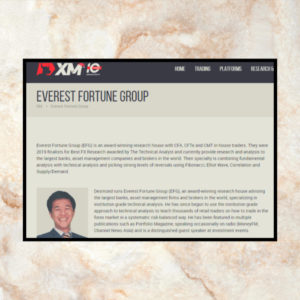- Why Issue Shares
- Why Invest in Shares
- Stock Exchange
- Indices
- Bull & Bear Markets
Why issue Shares

- In order to start a new company or expand an existing one you need capital. Companies use various sources for that capital
- The owners can use their own money
- The company can borrow from a bank or other people
- The company can issue and sell shares to investors
- The advantage of raising capital through shares is that you don’t have to pay back the money or pay interest to the investors
Why Invest in Shares?

- A share, (also known as a stock or equity) is the smallest unit of ownership in a company. If you own a share of a company’s stock, you are a part owner
- In the long run shares offer better returns than government or corporate bonds, property and many other types of investment
- As a shareholder you have the right to vote on who runs the company and other important matters like selling the company
- By becoming an owner of the company you get a share of the profits this company makes – This is what is known as dividend
- If the company is profitable the price of its shares will rise and you will make a profit– This is known as capital gain
The Stock Market

- The stock market or stock exchange is simply the place where shares are traded – meaning bought and sold
- Shares of listed companies like Apple and IBM are traded in a stock exchange like the New York Stock Exchange
- Exchanges used to be physical locations where dealers used to meet but modern markets are switching to online trading
- Although most stocks are traded through an exchange, trading can also take place off exchanges or Over-the-Counter via CFDs
Stock Market Indices

- Indices summarize the performance of major groups of stocks
- It is calculated by finding an average price from the prices of the stocks within the group
- The Dow Jones 30 index is calculated using the closing prices of 30 of the biggest companies in the US stock exchange
- The UK100 is an average of 100 shares in the UK exchange, Nikkei225 from 225 shares in Japan
- It represents the general performance of the market, and can be traded as a whole instead of buying each individual share
Bull and Bear Markets

- The stock market represents a constant battle between buyers and sellers and reflects positive or negative price movements
- If a company is profitable at the moment and expected to make more profits in the future the price of its share will rise
- A bull market is a market where the majority of its shares or indices are experiencing a rise in prices
- If a company is not profitable at the moment and is not expected to make future profits, its share price will drop
- A bear market is a market where the majority of its shares or indices are experiencing a fall in prices
- What are CFDs
- Types of CFDs
- Advantages of CFDs
- Disadv. of CFDs
- Examples on CFDs
What are Contracts For Differences?

- CFDs are financial derivatives that allow investors to participate in the movement of asset prices without full ownership of the asset
- CFDs are over the counter financial derivatives that are traded through a dealer network and not through a formal exchange
- CFDs simulate the value of the underlying asset which can be a currency, a share, a stock market index or a commodity
- For example when you buy 1 CFD of Microsoft it is like buying 1 share of Microsoft with the only difference that you don’t own the share
- All profit and loss is paid in cash and is determined by the difference between the purchase price and the selling price of the CFD
Comparing XYZ Share & XYZ CFD


Types of CFDs

- Currencies (eurusd, gbpusd, usdjpy…)
- Cryptocurrencies (bitcoin, etherium…)
- Indices like (US500, DAX and Jp225)
- Equities (Microsoft, Apple, Alibaba…)
- Commodities (gold, oil, silver, sugar…)
Advantages of CFDs

- Profit from both rising and falling markets
- Investors can trade using leverage
- Fast execution and low transaction costs
- Small contract sizes
- No physical delivery
Disadvantages of CFDs

- CFDs on equities have no voting rights
- CFD positions cannot be transferred to a different CFD provider or broker
- Trading with high leverage increases risk
- Ease of access and low capital requirements can lead to overtrading
- Swaps are charged
Apple Share vs Apple CFD




Bitcoin in Exchange vs Bitcoin CFD












